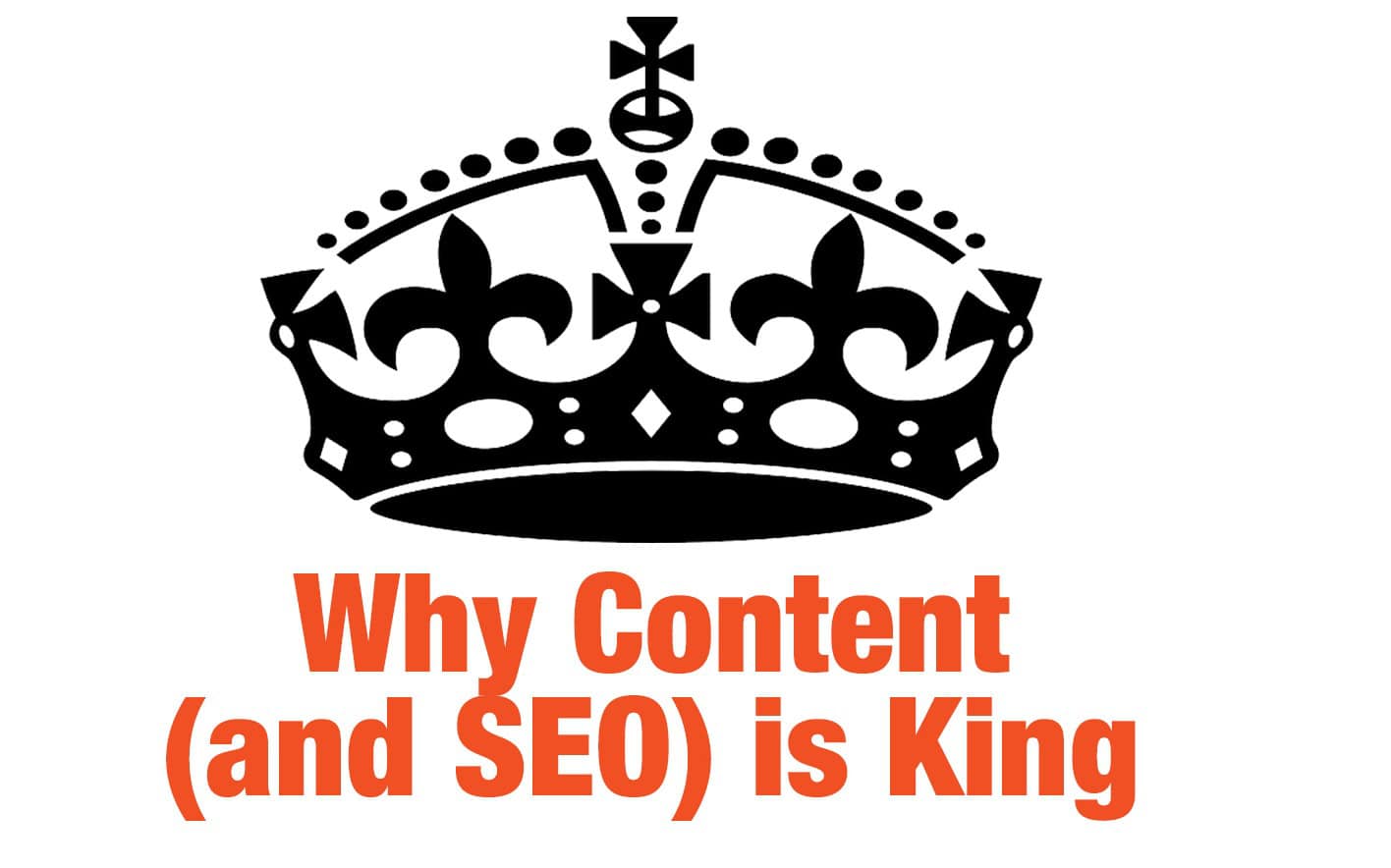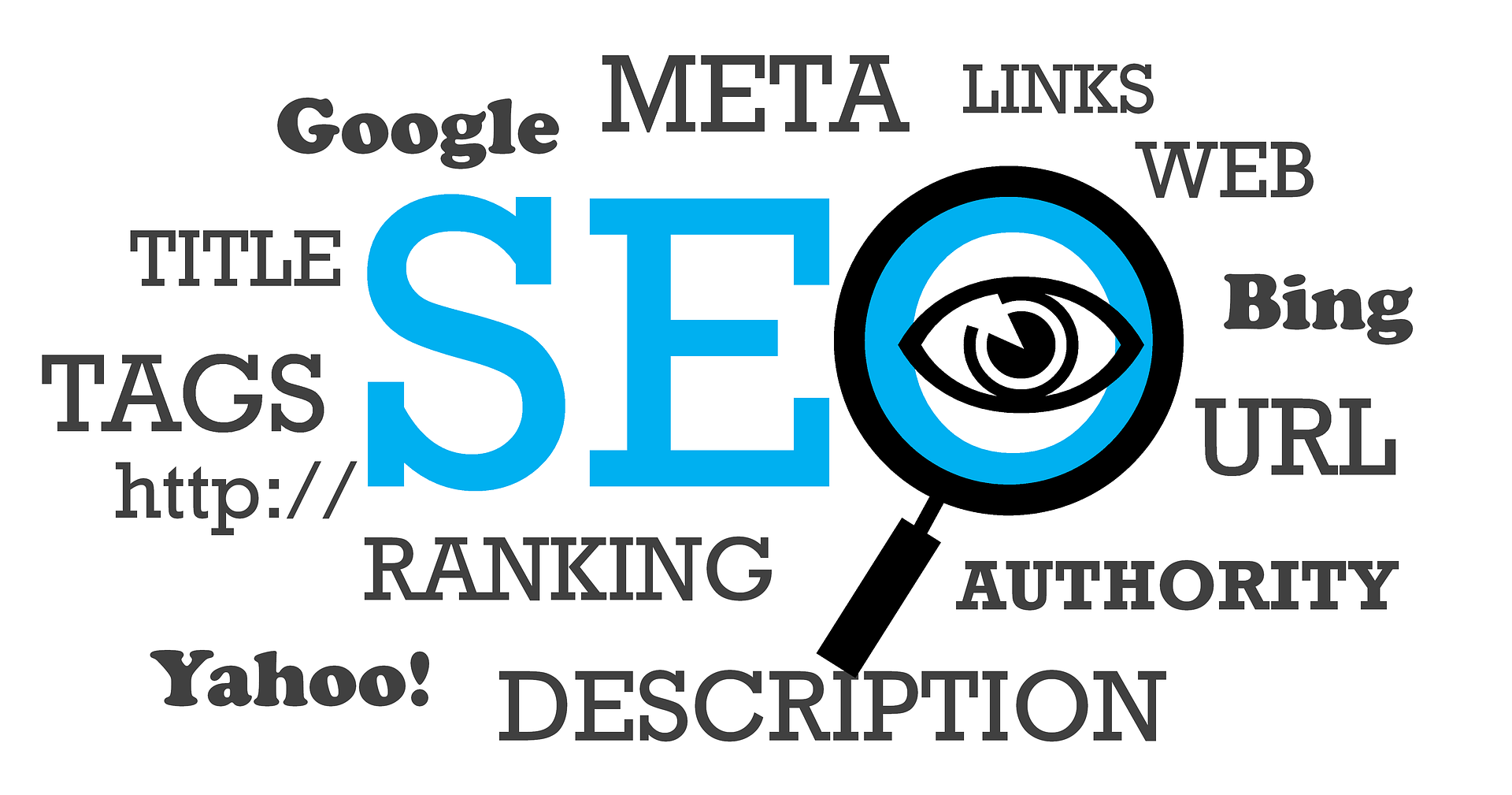You may hear the phrase “Content is King”, and you may hear just how well SEO and content marketing go together, like peanut butter and jelly, or peas and carrots. And anyone who says so, is not wrong.
However, I’d be inclined to argue that SEO and content marketing are morphing into one and the same; and one should not be considered without the other.
But what is it that actually makes SEO and content marketing go hand in hand? And what makes them so alike within your overall digital marketing strategy?

SEO and Content Come Together
When developing new content, optimising it for search engines should be considered from the beginning.
Similarly, if you’re looking to optimise your website for search engines, then content marketing should be considered from the start too.
And that is quite simply why SEO and content marketing should be run as one campaign, and align as one.
If your end aim is brand exposure, and to generate more relevant traffic to your website, then content marketing can help with SEO, and content marketing can help with the SEO of your site. It’s as simple as that.
Staff and Expertise
If you are a content marketer, or SEO expert, then your knowledge on the two topics should overlap. Similarly, if you’re looking to hire someone or an agency to optimise your website for you, then it’s best if they have knowledge in both SEO and content marketing.
If you have a larger team, your writers or content marketers should be liaising and co-operating with whoever is in charge of your SEO on a regular basis. Even better, they should be within the same department, to ensure they are taking your business in the same direction online.
Content marketers need to know how to optimise their content best, in order to create the best possible online exposure. And anyone dealing with SEO should appreciate the value that content has to offer, and know exactly how to leverage content in order to boost the online profile of a brand.
SEO informs your content
How do you know what to blog about, or what content to feature on your website?
Your regular content should be based upon what your visitors actually want to read. And low and behold, this data can be generated by seeing what people are searching for, and generating content that answers any questions or queries that are being searched.
In the broadest sense, when attempting to optimise your website, this data should be used to inform what content you should be generating. Topics, themes, or products that you generate content around should benefit visitors, and offer them information or entertainment on something they actually want to read. Nobody wants to read sales copy by choice.
Top quality content provides great SEO value
At the heart of it all, what is the best way to generate traffic to your website? By generating top quality content, simple as that.
Google has many algorithms to detect whether a piece of content is great, or whether a web page is useful to their searchers. Google will only rank content it deems to be high quality; and this is why top content marketing is the best way to promote and optimise your website for search engines.
If you are providing poorly written content that doesn’t help your visitors out, then Google is well aware. This can damage your website’s online visibility, and ultimately your brand.
SEO involves links, content creates links
Why would someone link to your website? What would convince someone to post a link to a piece of your content? It’s because someone has found what they wanted, or have come across an interesting or entertaining piece of content that they want to share with others.
To get your site optimised for search engines, links to your website work wonders. Websites will link to your website if they have found something of worth; whether it’s a source for their own content, or whether it’s otherwise tied to whatever they have to offer.
Increasingly, people will share links via social media, which Google takes notice of. If your content proves popular with your audience, or perhaps even goes viral, then it will significantly help the optimisation of your site.
And again, the best way to generate links for SEO purposes is quite simply to offer up great content for people to link to.
SEO needs consistency, content marketing is consistent
Why is regular blogging and regular content marketing so effective? Because SEO involves providing fresh content to your audiences.
To provide regular content to please Google’s algorithms, getting into the swing of regularly generating new content, and updating any old website content you have, can do wonders. A content marketing calendar, and ongoing efforts, all benefit SEO.
SEO is not a “one-off” event. To truly optimise your website, it’s an ongoing process of incremental improvements, and ensuring you do every slice of SEO correctly. And part of this, is writing new content, and ensuring none of the content on your website becomes stale and
So what are the differences?
Still, at the end of the day, SEO does have a separate name to content marketing. They are different things; even if they overlap, and benefit from one another.
In essence, SEO is the technical side of what makes content popular and “optimised” for search engines. On the flip side, content marketing in essence is simply informative and entertaining writing; but the aim of the game is to increase brand visibility, appeal to search queries, and create compelling content that people genuinely wish to read.
But to do any form of SEO, you’re going to need content. And any content marketing will only thrive if it adheres to the requirements of SEO. So all in all, they need one another.
Content marketers may have different inherent skills to someone who specialises in SEO; but each should have an understanding of the other role in question.
How do I get started with Content Marketing and SEO?
Increasing traffic and providing more value through the content on your site will be much easier if your content marketing and SEO efforts are aligned; or even better, formed in one neat strategy.
Could you set-up and run a blog with regular, fresh content to appeal to Google? Could you take a look back at old web pages and update the copy? Can you run a detailed analysis of how your website is performing, and see where you can improve? Do you have dedicated pages which appeal to certain web searches which lead to your products or services?
Unfortunately, there is no easy answer as to how best to optimise a website, and each needs to be assessed on a case by case basis. But there’s a lot you can be doing to improve your visibility online, and it’s not entirely difficult. Sure, it’s time consuming, but the end result of gaining more traffic on your website, more interest in your brand, extra conversions on your website, or additional leads, is surely entirely worth it.
If you’re quite capable of generating fresh content but need a hand in getting started with SEO and content marketing, get in touch with the team here at Xanthos to discuss.
Xanthos offer content marketing services, whether you just need a content marketing strategy and action plan to get you started, or even if you need ongoing content to populate your corporate blog. We also offer a range of SEO services, to ensure your website is fully optimised for better rankings in Google search results.






